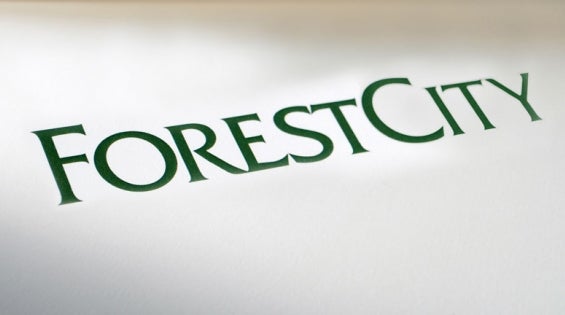Green Technology Investor Looks to Keep Friends in Washington
Lachlan Markay /
Real estate giant Forest City Enterprises is getting into the renewable energy market, investing in waste-to-methane conversion, a technology one company executive says “can survive without public subsidy.” But so far, that technology is reliant on taxpayer dollars, and Forest City is also “investing” in politicians who will likely keep the federal pork flowing.
Cleveland-based Forest City just teamed up with Quasar Energy Group to develop a “1.3 Megawatt waste-to-energy system that recycles organic waste residuals from local businesses and produces electricity that will be sold to Cleveland Public Power,” according to a news release.
That project benefitted from a $1 million stimulus grant administered by the Ohio Department of Development, according to the Cleveland Plain-Dealer.
That grant notwithstanding, Forest City believes the anaerobic digesting technology, which converts organic waste into natural gas, can be commercially self-sustaining.
Compared to other forms of renewables, we’re much more confident that this form can survive without public subsidy,” Jon Ratner, Forest City’s vice president of sustainability initiatives, told the Plain-Dealer. While “we believe in public subsidy,” he added, “we can’t build a business model that’s reliant on public subsidy.”
Regardless, the company has already benefitted tremendously from federal handouts. As Scribe has reported, Forest City Residential Group chief executive Ronald Ratner (Jon’s uncle), is one of hundreds President Obama’s campaign to benefit from federal payouts.
Forest City has won millions in contracts and affordable housing grants under Obama.
Meanwhile, the company says it is considering five additional methane conversion projects, and its employees – including Jon Ratner and a host of other executives – have provided a steady source of financial support for the reelection campaign of Sen. Sherrod Brown (D-OH), one of Congress’s top champions of federal support for the technology.
In early 2011, Brown began pushing the Agriculture Department to subsidize the technology. Later that year, he won $10 million in USDA funding for a host of such projects, including subsidies for Quasar, which would later team up with Forest City.
Forest City, meanwhile, has extensively supported Brown’s campaign. Company employees and their family members have given him $170,800 since 2007, according to the Center for Responsive Politics. That includes contributions from Jon Ratner and fraternal company executives Deborah, Charles, and Ronald.
The company’s PAC has also supported members of Congress who have advocated federal support for the technology. Sen. Ben Cardin (D-MD) and Rep. Chris Van Hollen (D-MD) have jointly requested funding for an anaerobic digester project in their state.
If the subsidies for anaerobic digestion continue, Forest City will likely win out. But “even if the selected projects succeed,” Heritage’s Nick Loris explained in regards to energy subsidies generally, “such programs give preferential treatment to those companies lucky enough to receive a loan guarantee from the government and increase the opportunity for and likelihood of fraud and corruption.”

